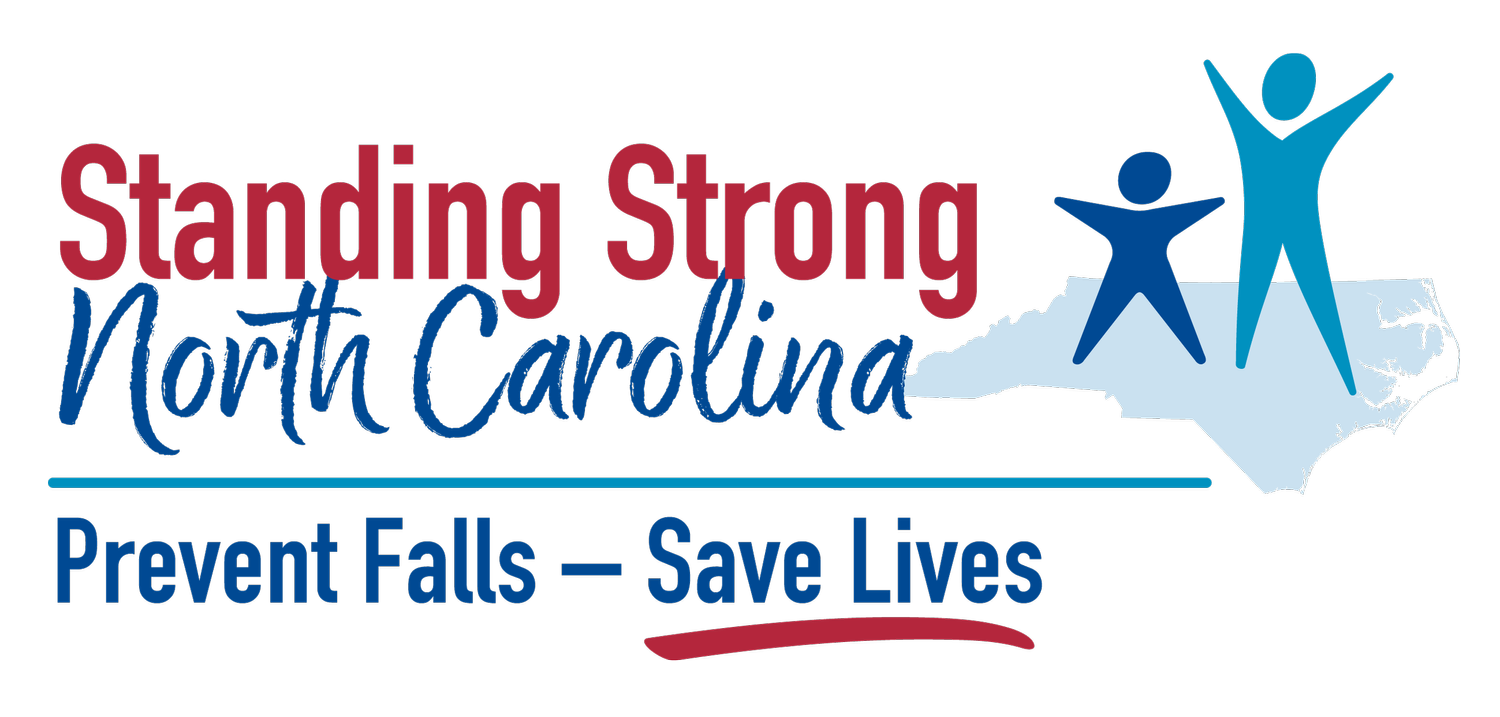
Falls Prevention Resources
Why is falls prevention so important?
Falls can be serious at any age, but for adults 55 and older, they can be dangerous. Falls are NOT a normal part of aging and most falls can be prevented.
Falls can happen for many different reasons, so our prevention efforts must include multiple approaches. Conditions that increase your chance of falling include environmental hazards, medical conditions, and even certain medications.
Talk to a healthcare provider, pharmacist, family and friends.
Exercise to improve your balance and strength.
Act to get your eyes, ears, and feet checked annually.
Make your home safer.
Talk to a doctor, pharmacist, family and friends about falling
-
Talk to a Doctor
Take the free online NCOA Falls Free CheckUp and take the results to your doctor. Or download this CDC Stay Independent checklist and review your answers with a doctor. Find more tips on starting the conversation with your healthcare provider here.
-
Talk to a Pharmacist
Some medicines can make you sleepy or dizzy, which can increase your fall risk. Ask your pharmacist to review your medicines and if they increase your risk of a fall. Not sure where to start? This flyer has a helpful question guide and a list of medication side effects.
-
Talk to your family and friends
Are you afraid of telling your family or friends that you had a fall or a fear of falling? You are not alone. Sometimes people don’t share because they are afraid of losing their independence or dignity. Read more about how to talk with family and friends about falling.
Find an Exercise Program
-
Evidence-Based Programs
Doing strength and balance exercises at least 3 times a week can help lower your risk for falling. Find a local falls prevention no-cost exercise program near you.
-
At-Home Exercises
Learn more about working with a physical therapist and some at-home exercises you can try.
-
Find your local Senior Center
Use the Find a Senior Center Map to see what exercise programs are offered near you.
Get your Eyes, Ears and Feet Checked Annually
-
Resources Blind or Visually Impaired Individuals
Find Vision Loss resources from NCDHHS in your area. Even small changes in vision can affect depth perception, ability to spot obstacles, and overall spatial awareness, increasing the risk of falling.
-
Services for Deaf and Hard of Hearing Individuals
Find local resources from NCDHHS - Ear health issues can increase your fall risk by causing dizziness, difficulty hearing, and poor balance.
-
Finding Well-Fitting Footwear and Annual Check-ups
Our feet can change over time. Getting your feet checked annually helps address foot pain, improve balance and stability, and ensure appropriate, well-fitting footwear.
Make your home safer
-
Find Local Resources for Home Modifications
Use our resource map to find North Carolina home modification and repair service providers in your area along with funding programs that may cover the costs, and educational materials about modifying your home through your local Area Agencies on Aging.
-
Prevent Falls Room-by-Room
Learn how to make prevent falls room-by-room from the National Institute of Aging. Additionally, find local home modification service providers at the bottom of their page.






